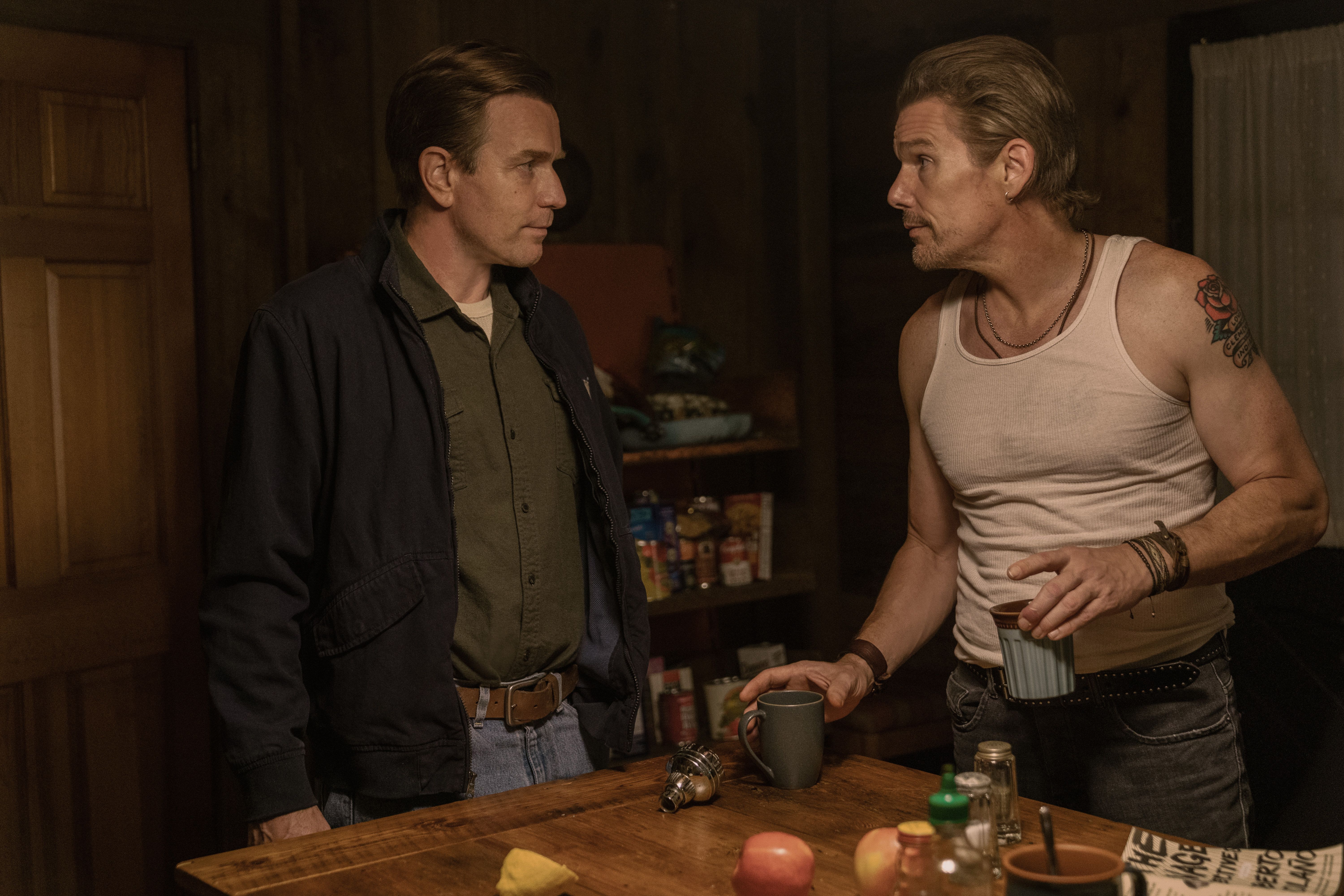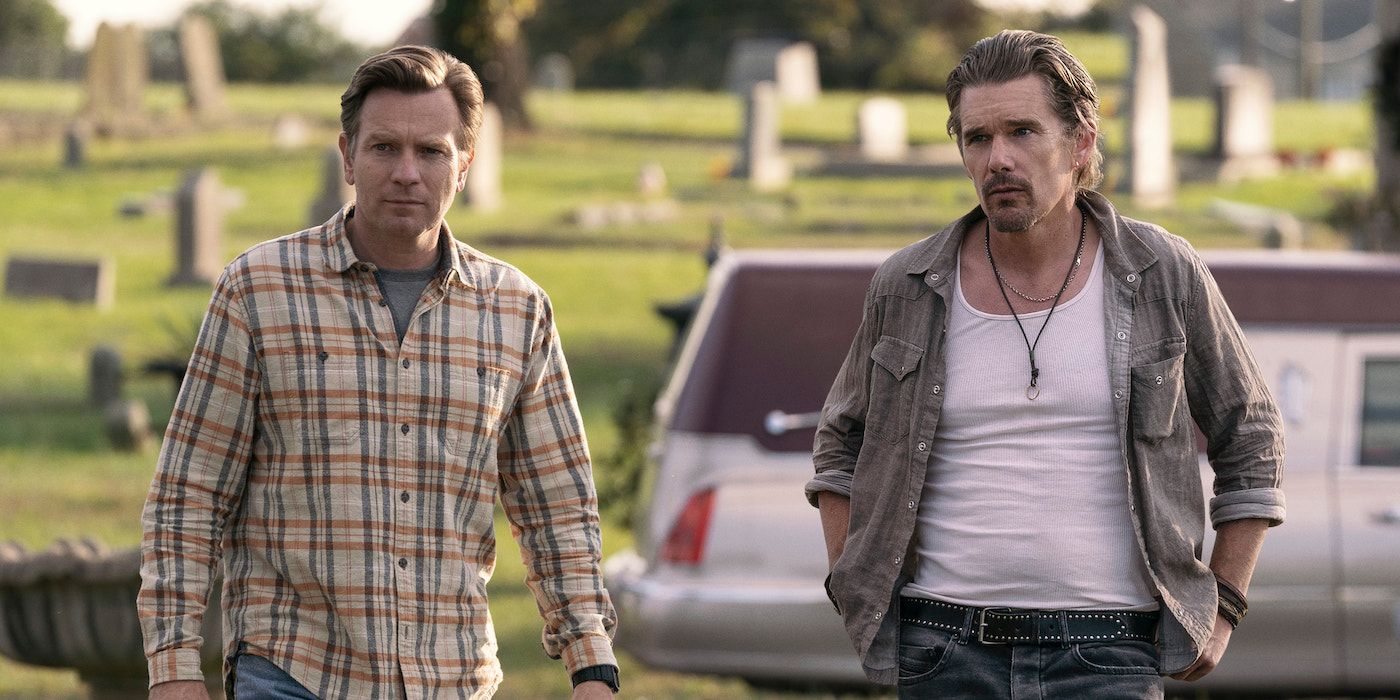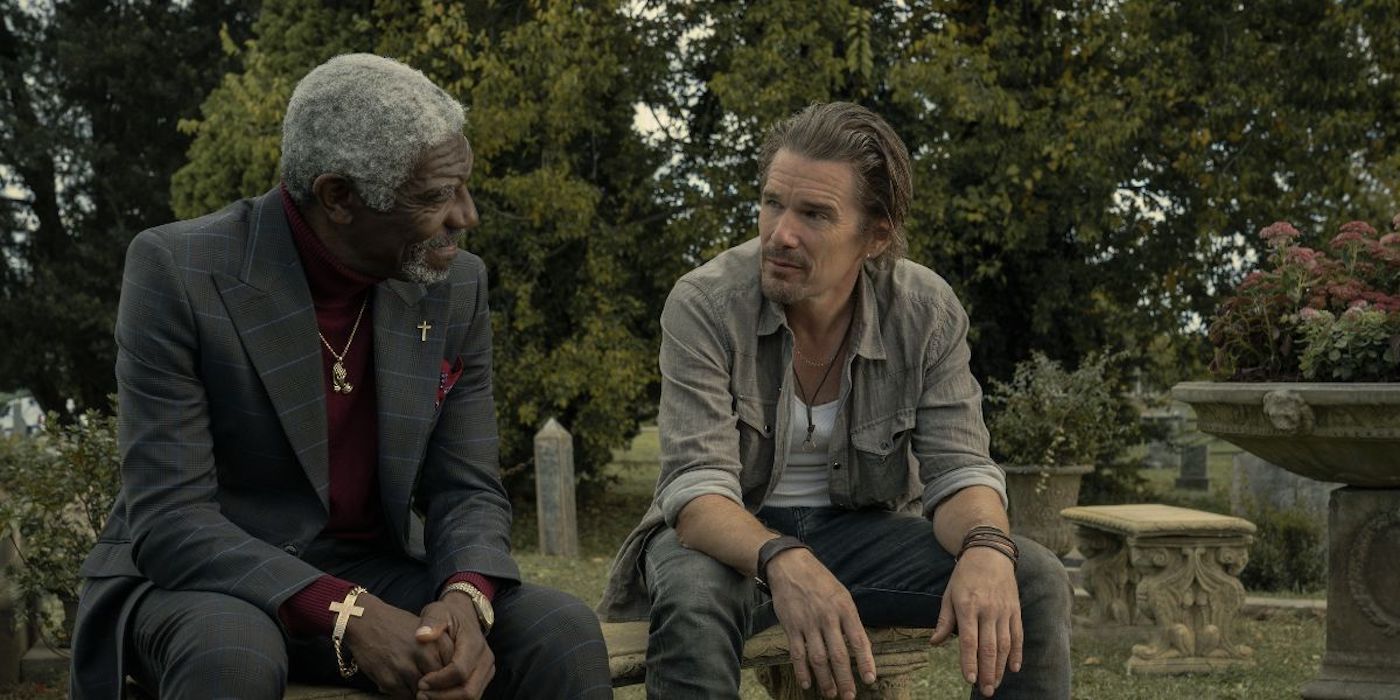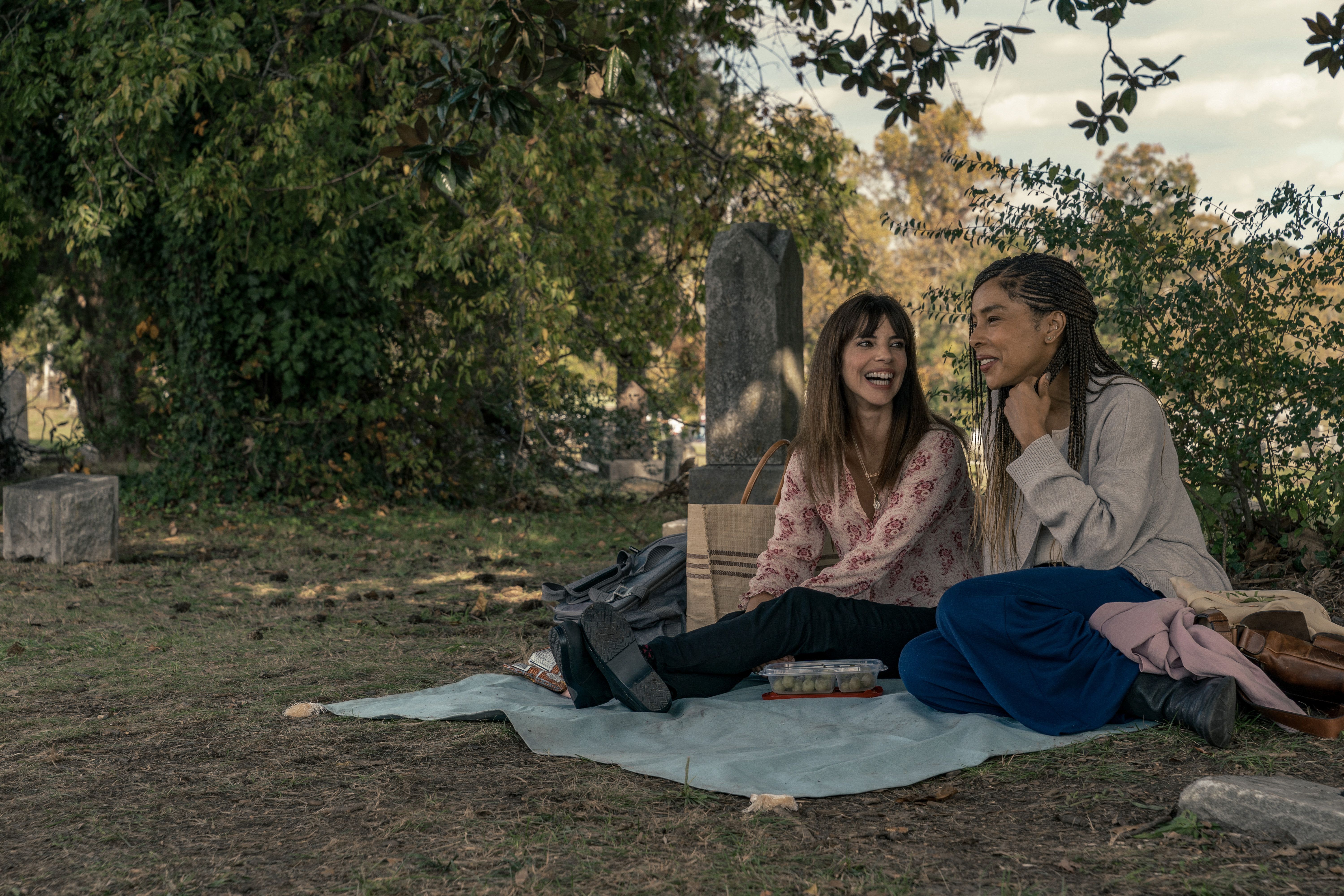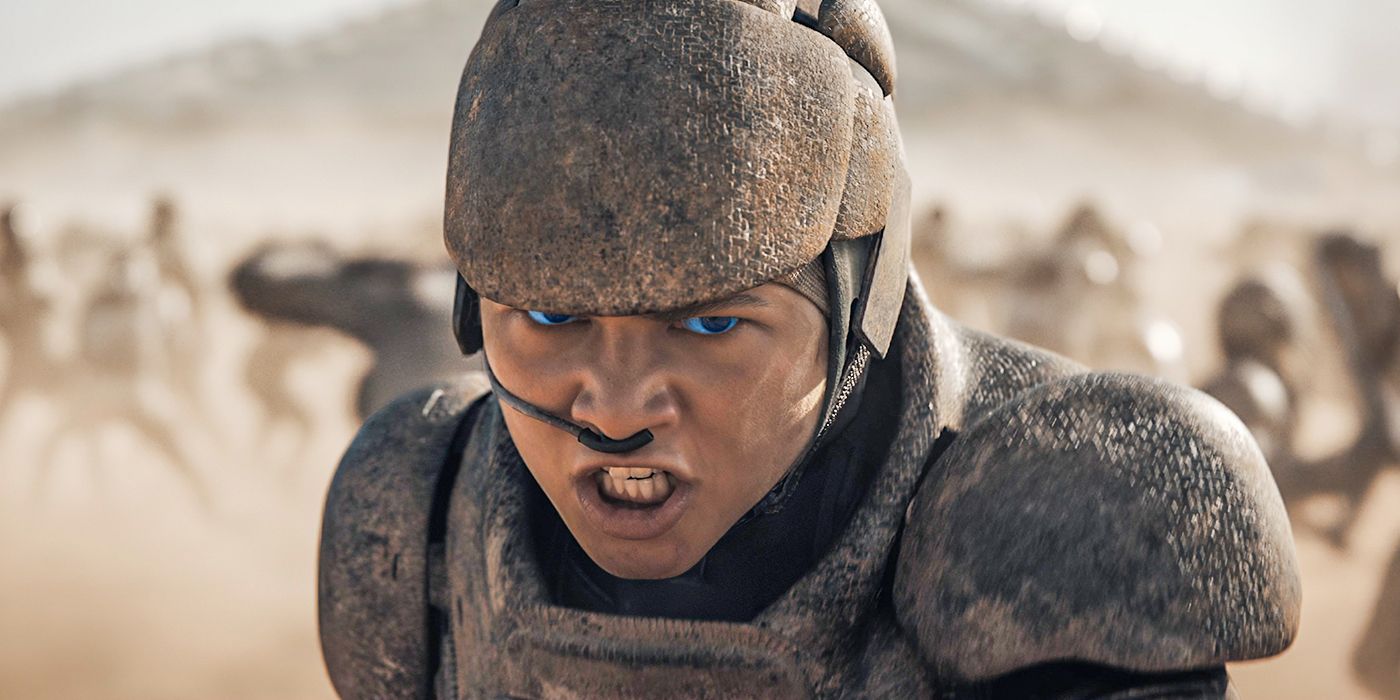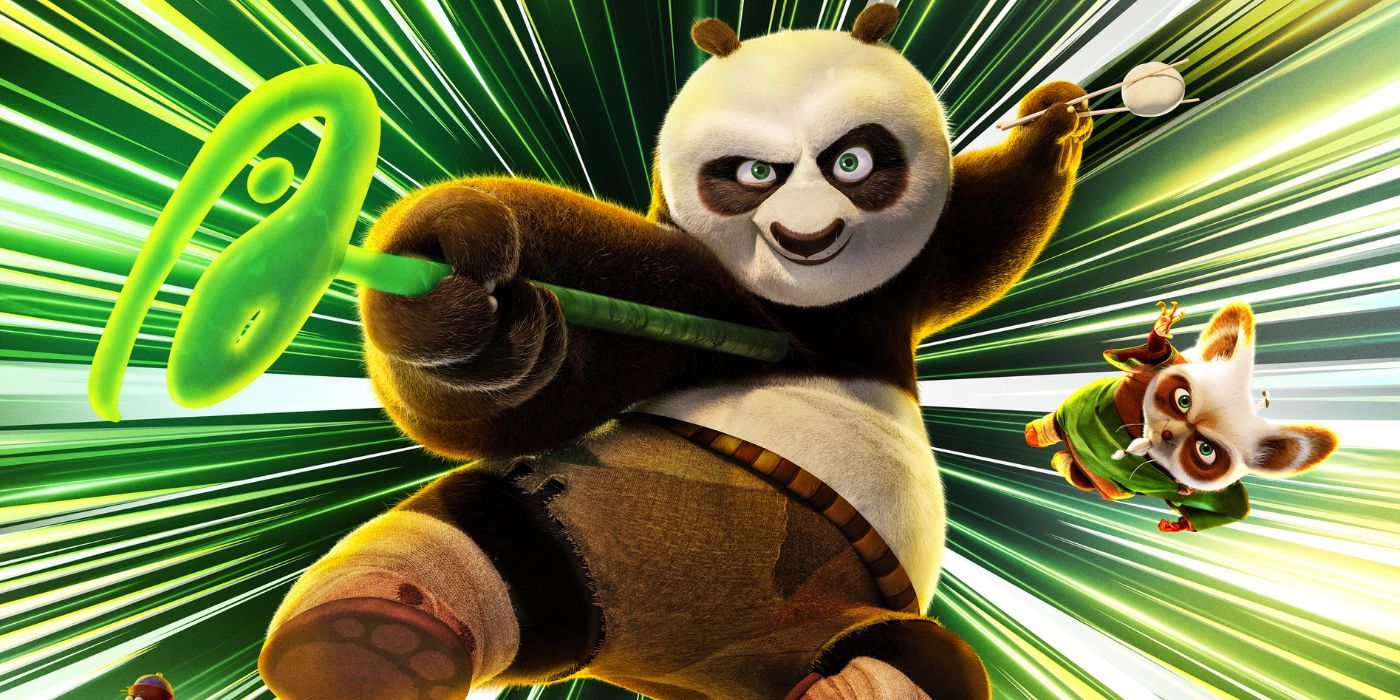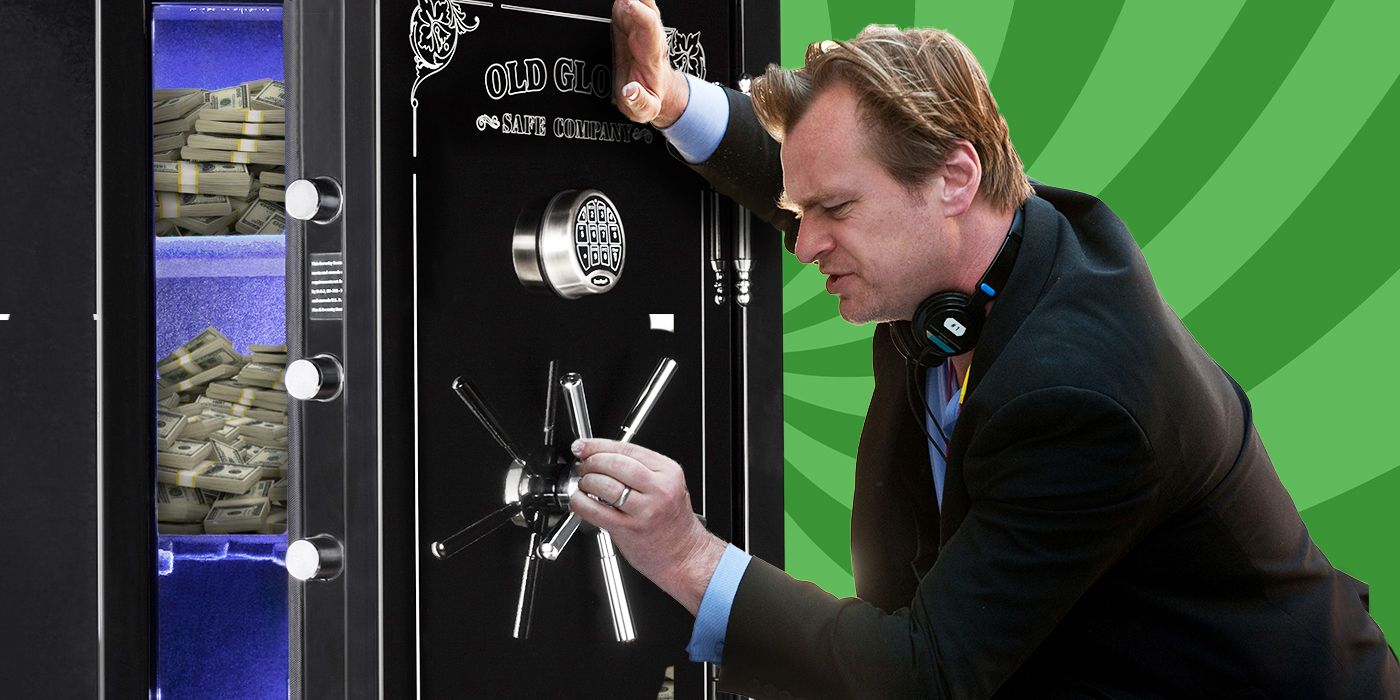With writer-director Rodrigo García’s Raymond & Ray now streaming on Apple TV+, I recently spoke with Ethan Hawke and Ewan McGregor about playing two half-brothers in the film. During the fun interview, they talked about what drew them to the project, how projects like this are difficult to get made, how they get ready for a role, how long it takes to let go of a character, and what you should watch if you’ve never seen their work. In addition, Hawke reveals why he signed on to voice Batman in the animated Batwheels cartoon, and McGregor talks about voicing Sebastian J. Cricket in Guillermo del Toro’s stop-motion Pinocchio movie.
Raymond & Ray tells the story of two half-brothers (Hawke and McGregor) who take a road trip to bury their father after he dies. Both had a bad relationship with the man, and both had reasons to hate him. But somehow, they each still have a sense of humor, and the road trip allows both of them to try and escape his ever-present looming shadow and gain closure in their lives. The film also stars Maribel Verdú, Sophie Okonedo, Tom Bower, and Vondie Curtis Hall. Raymond & Ray was produced by Alfonso Cuarón, Bonnie Curtis, and Julie Lynn.
Watch what Hawke and McGregor had to say in the player above, or you can read our conversation below.
Crumpa: I just want to say thank you, because I really appreciate the work you do. I just want to say thanks.
EWAN MCGREGOR: That’s nice. Thank you very much.
ETHAN HAWKE: Thank you very much.
MCGREGOR: So do we.
So being in an Apple movie, does that mean you get Apple products for free, for the rest of your life?
MCGREGOR: No.
HAWKE: I hope so.
MCGREGOR: No, it’s not true.
HAWKE: But can’t you tell it to them, that they-
This is what I’m talking about now.
MCGREGOR: They’ll give money for a movie, but they will not give you an iPhone.
HAWKE: I thought at the party last night, we were all going to get new iPhones, but that didn’t happen.
MCGREGOR: No.
HAWKE: Uh-uh.
Right. So I have plenty questions to ask about your movie and I want to say congratulations on it, but I like throwing some curve balls at the beginning.
HAWKE: So throw them.
If someone has never seen anything that you’ve done before, what is the first thing you want them watching and why?
HAWKE: Well, the first thing I want them to watch is Taxi Driver. I’m not in that, but they should watch it cause then they’ll understand where I’m coming from.
Sure. Good answer.
MCGREGOR: It all started with a Great Escape for me. The Great Escape. I was my favorite film as a kid.
I was actually thinking your resumes, but I see the way you’ve diverted.
HAWKE: We’ve diverted, we knew what you were thinking.
MCGREGOR: He wasn’t a Taxi Driver, I wasn’t the Great Escape. I mean, come on.
When you are playing a character that really gets into your skin, how long after a shoot does it take for you to let go of the character you’re playing?
MCGREGOR: It depends. Sometimes it’s on your walk to the trailer after the last shot, and sometimes it’s months later. It depends. It depends what they’ve meant to you, how fond you’ve become of them, what your experience was making the movie. You know, they’re not all like this.
HAWKE: No, I was telling Ewan and that… I remember the last time I took off my costume playing John Brown, I was in real pain about it. I didn’t want to finish playing the character. I just loved him so much and it took months for me to really kind of let go.
MCGREGOR: It was an unbelievable performance.
HAWKE: I’m so glad you feel that way.
MCGREGOR: I loved it so much. I was like, whoa!
HAWKE: But then there’s other times where it is true, where sometimes you don’t like the experience or sometimes there’s aspects of the character that bring out aspects of you that you don’t enjoy. They’re not something you enjoy going to. So those you’re very quick to let go of. And with this, it had been a long time since one was such an easy fit that it was like I, there’s aspects of Ray that I see in myself and seeing other characters I’ve played. So I felt really comfortable in this skin of this character.
Jumping into this film. Actually, the thing that I was thinking about when the movie ended was how the talking drama is a genre that is dying on the vine. It’s so hard to make these movies and this used to be the staple of studios for so long, and now thank you to Apple and streamers and whatever this came along. Can you sort talk about that?
HAWKE: It’s a threat. It’s almost analog in a way.
Exactly. There’s no CGI, It’s two brothers talking.
MCGREGOR: It’s a story about people and there are still people writing stories about people, but it’s true that they’re harder to get made, they’re harder to get seen. Last night, seeing this film on such a huge screen here at TIFF was such a treat. It was a treat. You don’t know how many people will go to see dramas like this in the cinema anymore, but it doesn’t matter. I still exist out there as a story that people will be moved by.
HAWKE: I know I recently saw a revival of some Arthur Miller play and I remember thinking, does anyone even try to write like this anymore? Does anyone try to write the Great American play? You feel Arthur Miller trying to capture all of humanity in this two and a half hour stretch. I respect the hubris of it, the quality, the striving for excellence. I really admire and I do. This is the kind of movie that made me want to be an actor, but they are… I always think that the Before Trilogy is a great example. The first Before Sunrise was made with a studio. The second one, nine years later, was made with Warner Independent, like an ancillary. And the third one was independently financed. Those kinds of movies, just people talking and people being with each other are getting ushered out of the mainstream conversation.
That’s what I was basically trying to say, but I did it ineloquently because I can’t speak English, it’s a second language.
MCGREGOR: No, no. I get what you’re saying. It’s a mystery to me. I don’t know because I still feel that people want to write these and as often as not, we still read them whether they end up getting made or not. I still get sent scripts like this, but they’re rarely of this quality because Rodrigo’s such an amazing writer. But still, I read scripts about people in real life situations.
HAWKE: But if they’re not really excellent, they don’t get made. And even if they are excellent, they-
MCGREGOR: They often don’t get made
HAWKE: Yeah.
MCGREGOR: Or they don’t get seen in the cinema.
HAWKE: Yeah.
I think the reason people are going to watch this and being honest, the reason I wanted to see this is because the two of you are in it. So I am curious though, for both of you, you get offered a lot of scripts when you’ve worked with Rodrigo before, but what was it about this, the character and this story that said, « I absolutely have to do this »?
MCGREGOR: I just thought it was such a beautiful exploration of… It was an unusual story. It’s a very unusual story. You’re reading it, and you’re going, « What? What? » And then the exploration of somebody’s pain and the fact that this… Raymond appealed to me immediately as I could understand and see how men or humans bury their pain away and then try and control the world in this sort of rigid, rulesy way in order to just get through life. And then, because of the brother Ray who just unpicks and just forces him to let that anger out in order to live and be in the world in a better way. I just find that so moving. I sort of related it to it in a way but I can’t explain why I don’t have to experience myself.
HAWKE: Well, it’s the stuff of real life. Our real life is driven by our relationships to our spouses, our lovers, our parents, our friends, our children. So when somebody can make art about what’s really going on in our life, I find it really exciting.
I can’t learn lines. Before you’re getting ready for this shoot, where you know it’s dialogue, are you learning it on the weekends before for that weeks… How do you do it?
HAWKE: You remind me of my grandmother when she would come see a play, she’d say « How do you remember all those lines?
MCGREGOR: Yeah.
HAWKE: « Well, the actors did a good job. Nobody forgot their lines. » It’s really the easiest part of what we do it. No, it’s funny that people… It’s like anything in life. It’s a habit. When you have strong habits. I’ve been doing this since I was 13 years old, memorizing things. I can memorize things pretty quickly. I am scared when I hear older actors talk about when it starts to go. I meet some actors that are way better than me. You hear stories about these… Billy Bob Thornton, he could read something once doesn’t matter if it’s a monologue. He reads it once and can pretty much repeat it back to you.
MCGREGOR: I can’t do that.
HAWKE: I can’t do that either.
MCGREGOR: Yeah, it’s like he says. It’s the imagining of the… It’s the thoughts behind… It’s not just the words, it’s the journey. You’re remembering the path of the feelings and the thoughts and the words sort of fall into place, I guess
HAWKE: When you really are meditating on why your character speaks and what is motivating him to speak, then the remembering of the lines is easy. What you’re trying to figure out is why you’re saying them and what’s driving the impulse to say them. And if the thing is well written, then the lines happen all by themselves.
When you were sent the script, did you know the character you were playing? Because I was wondering as it ended, what it would look like if you had played each other’s character?
MCGREGOR: Yeah. I read it. Rodrigo sent me the script first because we’d worked together before, and we are friends, and he was able to just give it to me and he sort of let me choose, I suppose. But I had no doubt I wanted to play Raymond. It wasn’t really a question to me at all. I don’t know why. It just appealed to me, more that character.
HAWKE: And then I read it that way, and it just seemed exactly right.
MCGREGOR: Yeah, it seemed right.
I’m assuming that, and I don’t know if it was like that on this shoot. But I would imagine when you’re filming something, there is a day in the schedule that maybe you circle because you know it might be emotionally challenging, or it’s a big action set piece or whatever it may be. You know it’s going to be a tough day. Was there one of those days on this shoot and if so, what was that scene or day?
MCGREGOR: I think the moment they break. For me, the moment that was leading towards the moment where Raymond unleashes his rage. Where he finally taps into his anger and lets it out and allows himself to be truly rageful at his father for what he did to him. And the whole movie for Raymond, is building up to that moment. And then there’s more movie after that, which was fun to play but that day, it was the scene.
HAWKE: It’s the same for both of us. It’s his unraveling that breaks Ray and provokes the playing at the grave. So it’s really… Each of our final goodbyes to our father, I think was the day that was circled in the calendar.
I have an individual question for each of you, if you don’t mind. What is it like voicing Batman on Batwheels? I believe that’s what it’s called.
HAWKE: Well, it’s just a kid show. It was just-
Sure, but it’s still voicing Batman.
HAWKE: Well, the things we said yes to during the pandemic are very interesting. No, I have a lot of kids, and I’ve spent a lot of my life really grateful to people making good kids entertainment of how you spend those mornings when you don’t want to get up, or you’re making coffee and putting… So I enjoyed it. It was a little foray into making some entertainment for kids.
I am so looking forward to Guillermo’s take on Pinocchio. Ewan, what was it like being a part of that project?
MCGREGOR: Yeah, it’s wonderful to work with him. He’s a character and somebody I liked for a very, very long time, admired his work, and it was great to do. They’re a little solitary voicing animations of any kind. You tend to do the work on your own as opposed to with other actors. So it becomes more sort of myopic in a way, like working on each line. But it’s fun to have seen it come together over the years. They’ve been shooting it for four years, like stop frame animation, four years. And to see over the time I’ve been working on it from a cartoon drawing to the finished animation, which looks absolutely beautiful. It’s been wonderful to see that.
HAWKE: I really cannot wait to see that movie.
Yeah, we’re on the same page. On that note, I want to say a sincere congratulations on this film. You guys did such great work and thank you for your time.
